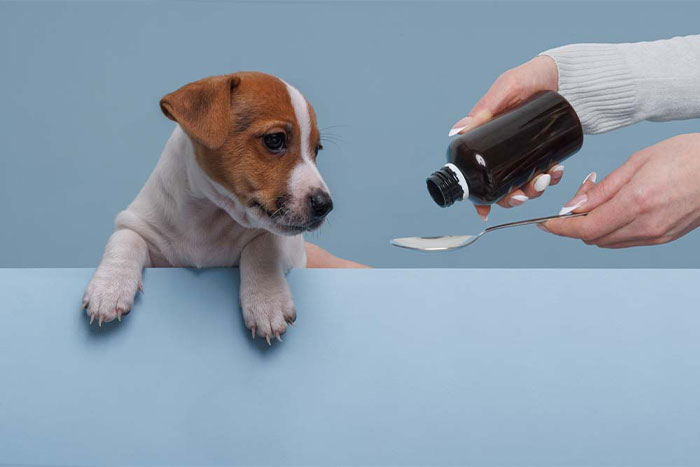To support a strong immune system and maintain a high level of overall health and wellbeing, it’s important that your dog’s diet includes all the vitamins and minerals they need. Feeding your pet nutrient rich foods or adding veterinarian formulated supplements to their diet are both great ways to ensure they are getting all the nutrients they need to live and long and healthy life. Read on to learn about the vitamins and minerals your dog should be getting and why they are important.
Vitamin Requirements
Vitamins are organic substances that the body needs to grow naturally, and deficiencies in any vitamin can cause many significant health issues. The most important vitamins that dogs need are:
Vitamin A
A fat-soluble vitamin commonly found in carrots, Vitamin A is responsible for maintaining healthy eyesight, foetal development, immune function, and body cell growth.
Vitamins B
A whole family of vitamins, B Vitamins play a significant role in maintaining your dog’s health.
- Thiamine (Vitamin B1) is responsible for energy and carbohydrate metabolism and activates ion channels in neural tissues.
- Riboflavin (Vitamin B12) is combined with niacin to help facilitate enzyme function.
- Pyridoxine (Vitamin B6) is a water-soluble vitamin that plays a vital role in red blood cell function, glucose generation, nervous system function, hormonal regulation, immune response, and niacin synthesis and genetic activation.
- Pantothenic acid (Vitamin B5) is a water-soluble vitamin which helps in the formation of coenzyme A and energy metabolism.
- Folic acid (Vitamin B9) is a primary function in the metabolism of amino acids and nucleotides, and the synthesis of mitochondrial proteins.
Vitamin C
While it can be produced through normal glucose metabolism, the amount a dog makes naturally will not meet the demand for optimal health. As an antioxidant, Vitamin C helps reduce inflammation and cognitive aging.
Vitamin D
This helps dogs maintain phosphorus and calcium balance for healthy bone and muscle growth.
Vitamin E
A fat-soluble vitamin which supports the growth of puppies. It benefits cell function, metabolism, and defence against oxidative damage. Deficiency may lead to muscle degeneration and reproductive problems.
Vitamin K
Another fat-soluble vitamin, this helps prevent bleeding problems and improves blood clotting.
Choline
A key nutrient for dogs and aids in important liver and brain function. It’s also used in the treatment of epilepsy.
Mineral Requirements
Minerals are divided into two groups:
Macro minerals – required in large quantities, macro minerals include phosphorus, calcium, sodium, magnesium, potassium, chloride, and sulphur.
- Calcium and phosphorus go hand in hand, they are the building blocks of bones and teeth. Calcium also acts as a messenger in the dog’s body and facilitates nerve impulse transmission, muscle contractions, constriction and dilation of blood vessels, blood coagulation, and secretion of hormones.
- Potassium, sodium, and chloride are the three main electrolytes present in the dog’s body. Electrolytes play a crucial role in maintaining your dog’s fluid balance.
- Magnesium performs a variety of functions. It is the main component of enzymes, bones, and intracellular fluids. Additionally, magnesium has a large effect on neuromuscular transmission.
Micro minerals – required in trace quantities, micro minerals include iron, copper, zinc, iodine, chromium, manganese, selenium, and fluorine.
- Iron is one of the most necessary minerals for a dog’s body. It plays many roles, but its most crucial function is transporting oxygen throughout the body and helping to strengthen the immune system.
- Zinc assists in activating hormones, enzymes, and various other bodily functions. It also aids growth, wound healing, reproduction, strengthening the immune system, protein digestion, and thyroid function regulation.
- Copper helps provide the synthesis of neurotransmitters, bones and connective tissues, and the formation of collagen. It also provides antioxidant defence, pigmentation of the skin and hair, and development of red blood cells.
- Selenium has many health benefits. The primary function that selenium performs is the metabolism of thyroid hormones and antioxidant protection.
Important Considerations
Essential vitamins and minerals are required to help the performance of basic functions of the body. However, there is a minimum and maximum requirement of each mineral and vitamin. Whilst insufficient amounts can cause a wide range of health problems, excessive amounts can cause toxicity. Additionally, dog nutrition may vary depending on the specific dog, breed, and age. For the best advice on pet nutrition, speak to your local Roleystone vet. The team at Railway Avenue Veterinary Hospital can assess the nutrients that your pet is receiving from their current diet and advise any changes you can make or supplements you can add to support their health conditions and age.
For High-Quality Pet Care Services, Armadale Dog Owners Trust Us
As an experienced local vet, Roleystone, Armadale, and Byford pet owners turn to our team for reliable and affordable pet care. We understand that your pet is an important member of the family, so we are dedicated to putting their health care needs first. To make an appointment with our vets, Byford locals can book online or call (08) 9497 1547 today.


